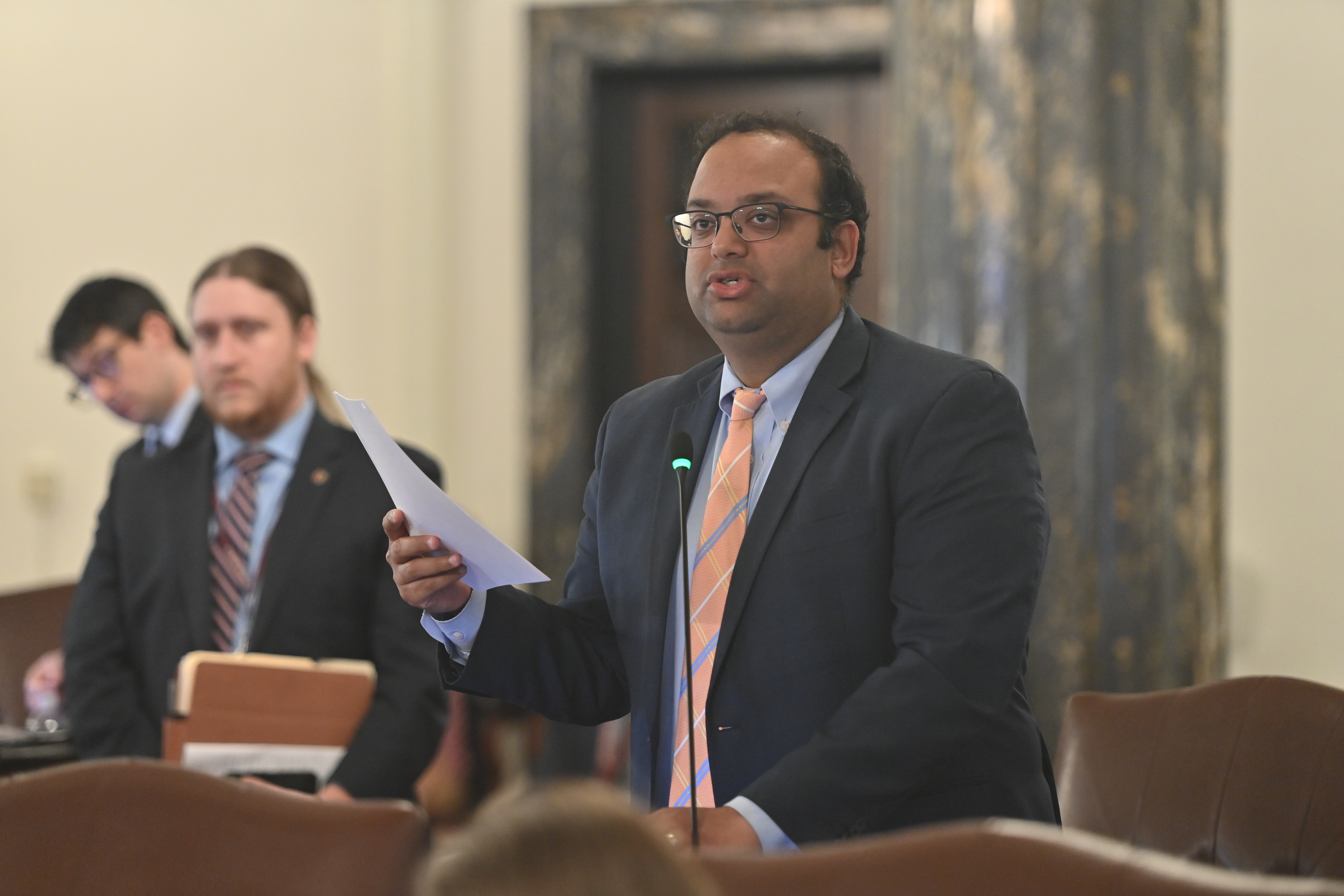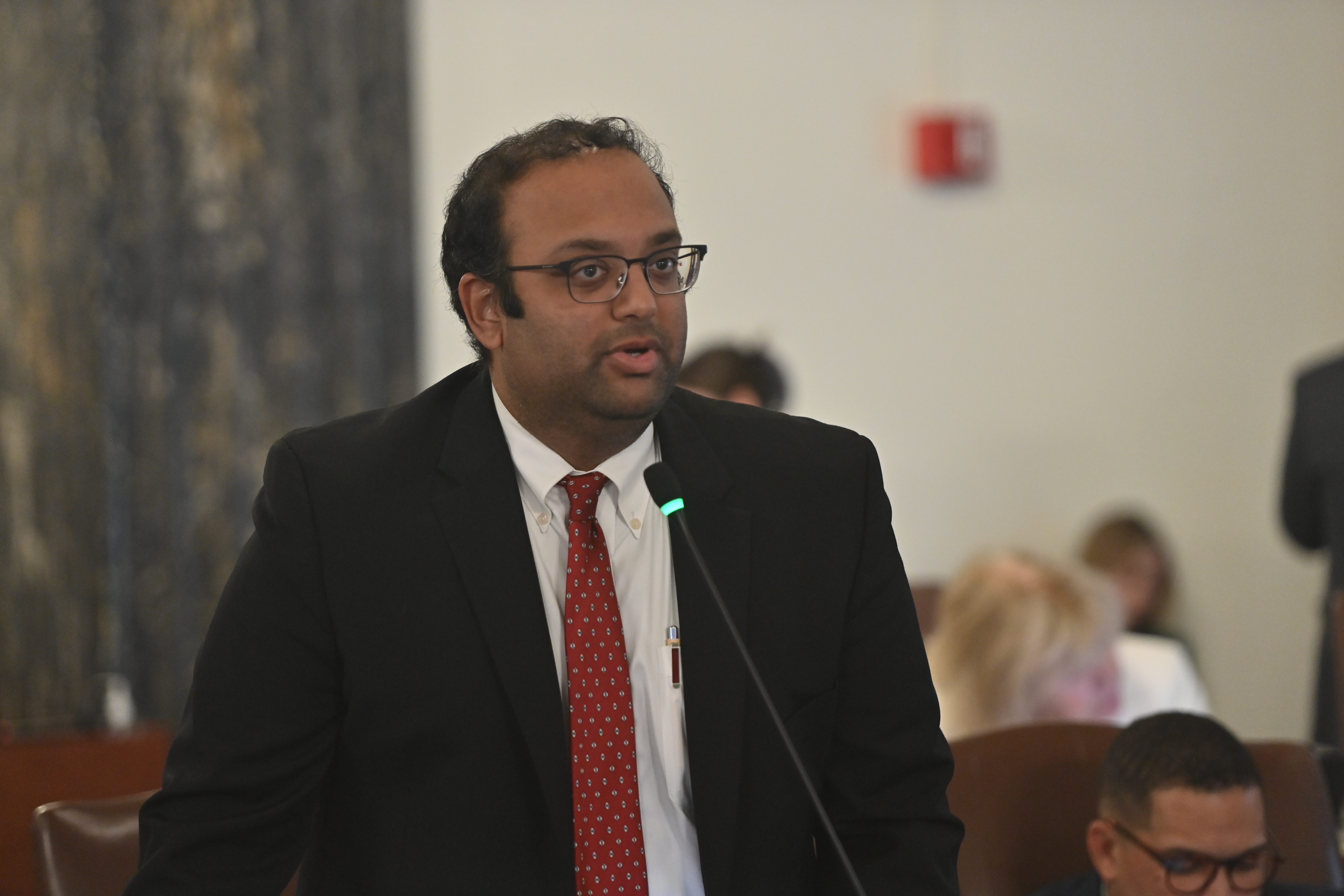- Category: Press Releases
SPRINGFIELD - A measure sponsored by State Senator Ram Villivalam would make it easier for people who have completed masonry programs to receive community college credit.
“Supporting people who are continuing their education is imperative,” said Villivalam (D-Chicago). “By including masonry into one of the non-degree programs that can be accepted, we will ensure that education is more accessible and equitable.”
- Category: Press Releases
SPRINGFIELD - To expand access to the Illinois’ Early Childhood Construction Grant program, State Senator Ram Villivalam passed legislation through the Senate that would make community-based not-for-profits eligible for $40 million.
“As a father of two, I understand the importance of having access to quality early childhood education,” said Villivalam (D-Chicago). “Our next generation is quickly growing up and it is important that we invest in resources to provide them with the quality education they need to succeed.”
- Category: Press Releases
SPRINGFIELD - To create continued opportunities in higher education for immigrants, State Senator Ram Villivalam advanced a measure to expand pathways for an individual to be eligible for in-state tuition.
“Higher education provides a wide array of opportunities, and sometimes the only thing standing in the way is affordability,” said Villivalam (D-Chicago). “When you broaden the ways one can qualify for in-state tuition, you give so many more a chance to achieve their educational goals.”
Under Villivalam’s measure, an individual could obtain in-state tuition by being an Illinois resident prior to enrolling in the respective university, be a high school graduate from a school within Illinois, or have attended a high school within Illinois for at least two years prior to enrollment.
Another option would be for the individual to have either attended a high school in Illinois, attended a private or public community college within Illinois, or a combination of college and high school in Illinois for at least two years with a cumulative total of three years before enrolling at the university. They also must have graduated from a high school, earned an associate’s degree, or completed at least 60 credit hours of graded and transferable coursework at a public community college.
Both pathways would require the individual to swear and affirm to the respective university that they will file an application to become a permanent resident of the United States at their earliest opportunity, if they are not already a permanent resident or citizen.
“Expanding in-state tuition pathways breaks down barriers, especially for our working families,” said Villivalam. “This measure can help make higher education a reality for many, which is a step in the right direction to continue enriching and investing in our communities.”
Senate Bill 461 passed the Senate in a bipartisan fashion, where it now awaits a vote in the House.
- Category: Press Releases
SPRINGFIELD - To create continued opportunities in higher education for immigrants, State Senator Ram Villivalam advanced a measure out of the Senate Higher Education Committee to expand pathways for an individual to be eligible for in-state tuition.
“Expanding eligibility pathways for in-state tuition is vital to providing affordable and accessible higher education for all people within our communities,” said Villivalam (D-Chicago). “It is important to continue diversifying avenues to access higher education to ensure a talented workforce in the state of Illinois.”
More Articles …
- Villivalam passes measure to expand access to grant funds for youth of exonerated individuals
- Villivalam releases statement on appointment of new DCFS director
- Villivalam measure would expand access to grant funds for youth of exonerated individuals
- Senator Villivalam celebrates Senate passage of Chicago elected school board bill
Page 19 of 86









